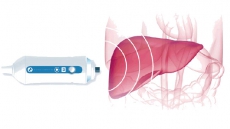A new computer simulation shows how the flu virus attacks and infects host cells which may lead to new strategies to stop influenza and even Ebola, perhaps even a one-size-fits-all vaccine.
In the new model, scientists at Rice University and Baylor College of Medicine in Texas have showed the path taken by hemagglutinin - a glycoprotein that rides the surface of the influenza virus - as it releases fusion peptides to invade a host cell.
Researchers have long observed hemagglutinin's initial and final structures through X-ray crystallography.
But the change happens so quickly, it has been impossible to capture an image of the glycoprotein in transit.
The key to stopping the flu could be to attack these intermediate structures.
In the case of hemagglutinin, the unfolding and refolding happens in seconds.
During the process, part of the protein "cracks" and releases fusion peptides.
"The fusion peptides are the most important part of the molecule. The hemagglutinin is attached to the viral membrane, and when these peptides are released, they embed themselves in the target cell's membrane, creating a connection between the two," explained Jeffrey Noel, a postdoctoral researcher at Rice University.
The purpose of hemagglutinin is to poke a hole between the two membranes.
"They have to fuse so the genetic material will be injected into the human cell," added Jianpeng Ma, who has a joint appointment at Rice University and Baylor College of Medicine.
The membrane fusion mechanism is widely shared among many biological systems that makes influenza a good model for studying other diseases.
"HIV has one. Ebola has one. And it is also shared by intercell transport in the nervous system," Ma added.
The discovery was reported in the journal Proceedings of the National Academy of Sciences.





